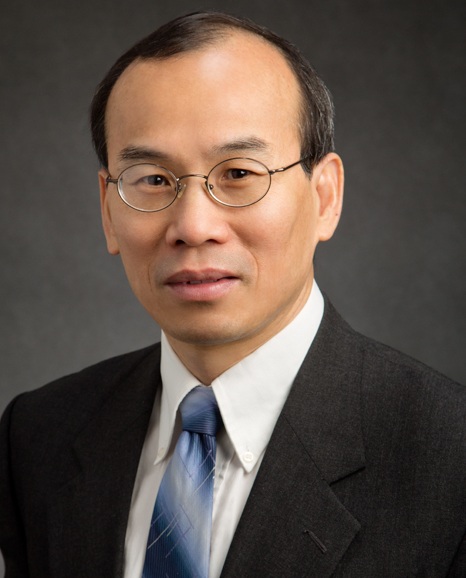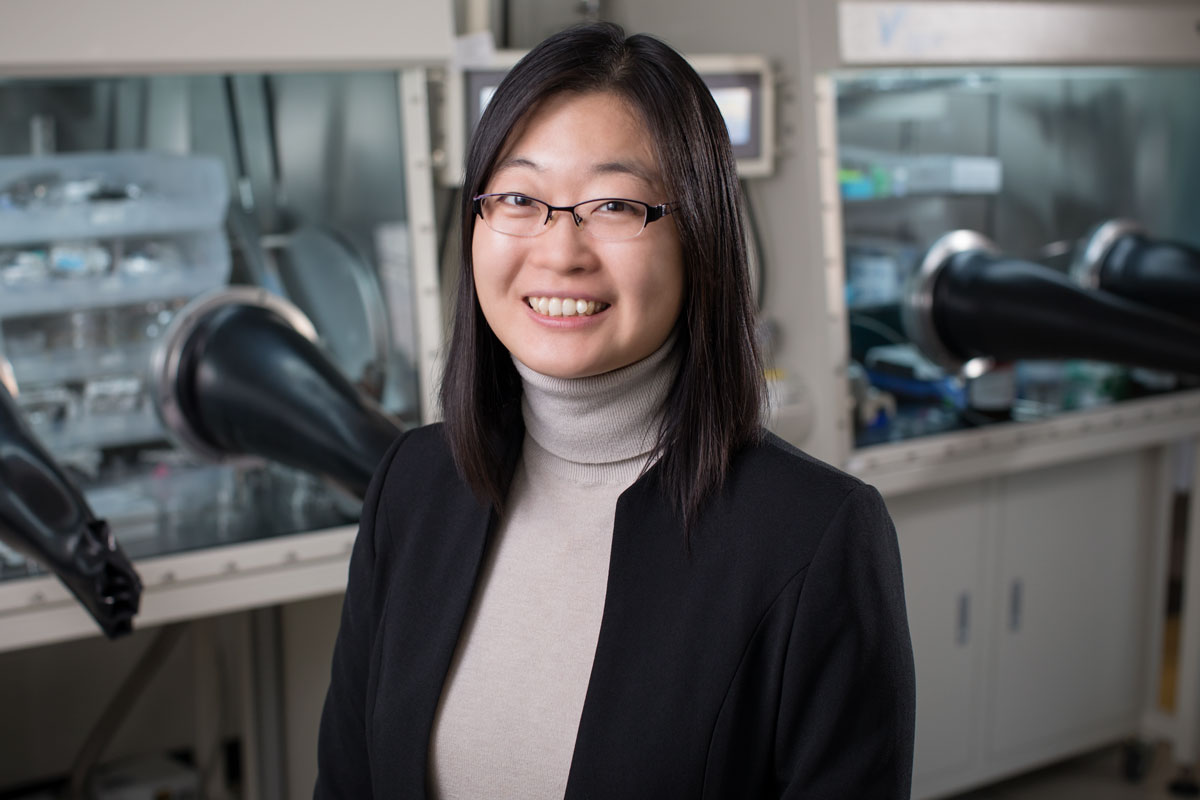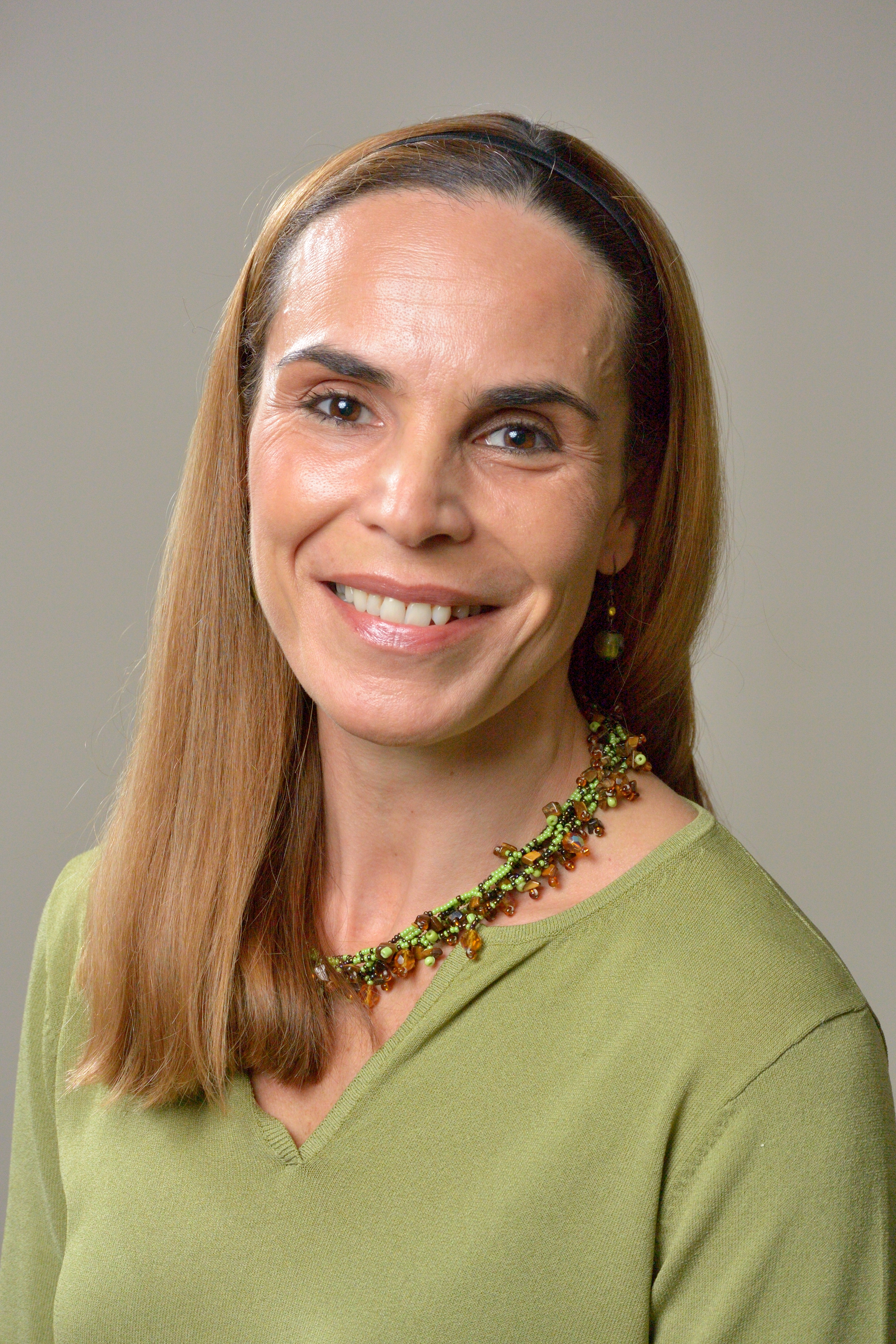Article
The world’s first AI brain mapping center. Food, feed, and fuel crops that flip into cactus-mode in times of drought. Inclusive research dedicated to improving the health of mothers and children from underrepresented socioeconomic communities. When Beckman researchers get together, they dream boldly — and they turn those dreams into proposals.
This year, the Beckman Institute for Advanced Science and Technology seeded three projects as part of its new research seed grants program. The program kick-starts bold scientific projects that reach across disciplines to answer questions that could not be addressed by individual researchers or departments.
-nadya-mason-by-della-perrone.jpg?Status=Master&sfvrsn=dd575c37_1) Nadya Mason
“The mission of Beckman is to support interdisciplinary, collaborative, impactful science,” said Beckman Director Nadya Mason,
who initiated the program in her first year leading the institute. “Seed grants are a perfect way to fulfill this mission by bringing in diverse people, new collaborations, and out-of-the box thinking.”
Nadya Mason
“The mission of Beckman is to support interdisciplinary, collaborative, impactful science,” said Beckman Director Nadya Mason,
who initiated the program in her first year leading the institute. “Seed grants are a perfect way to fulfill this mission by bringing in diverse people, new collaborations, and out-of-the box thinking.”
Applicants may request up to $150,000 per year, with $25,000 provided per principal investigator per year. After the first year, investigators will be asked to provide a progress report; at the conclusion of the project, they will be asked to present a final report and present their projects at a Beckman Institute Director’s Seminar.
But the two-year term is just the beginning. Projects seeded by the Beckman Institute are expected to lead to externally funded proposals, at which point they will continue to grow, mature, and gain more interdisciplinary collaborators.
“Science takes time to develop, especially if it involves new collaborations and ideas. Our seed grants provide the springboard that will allow projects to flourish in the long-term,” Mason said. “We are excited to wait and see what new research, grants, and collaborations are set in motion by these grants."
Learn more about Beckman’s three seed-funded projects and their long-term aims.
Mapping the brain with artificial intelligence
The members of this formidable research team share one vision: the world’s first dedicated center for AI-powered brain mapping, right here on the University of Illinois Urbana-Champaign campus.
Epilepsy, tumors, stroke, and other brain diseases and disorders affect more than 100 million Americans and cost more than $700 billion each year. To treat these conditions, clinicians often turn to noninvasive imaging technologies like magnetic resonance imaging. While these tools are invaluable on their own, pairing them with the power of artificial intelligence and label-free molecular imaging can advance our understanding of how the brain works and enhance our ability to detect and treat brain diseases.
 Zhi-Pei Liang
“Ours is the first attempt in the world to develop next-generation AI-enabled brain mapping technologies capable of unraveling the structural, functional, and molecular fingerprints of brain function and diseases,” said Zhi-Pei Liang, the Franklin W. Woeltge Professor in electrical and computer engineering and one of six co-principal investigators spearheading the proposal.
Zhi-Pei Liang
“Ours is the first attempt in the world to develop next-generation AI-enabled brain mapping technologies capable of unraveling the structural, functional, and molecular fingerprints of brain function and diseases,” said Zhi-Pei Liang, the Franklin W. Woeltge Professor in electrical and computer engineering and one of six co-principal investigators spearheading the proposal.
Liang’s co-PIs are Bradley P. Sutton, a professor of bioengineering and the technical director of Beckman’s Biomedical Imaging Center; Mark Anastasio, the Donald Biggar Willett Professor in Engineering and Department of Bioengineering head; Volodymyr Kindratenko, the assistant director of the National Center for Supercomputing Applications; Aron K. Barbey, a professor of psychology; and Tracey Wszalek, the director of BIC. The project will involve a team of researchers across campus and Carle Foundation Hospital with complementary expertise in imaging, neuroscience, and machine learning.
To advance their collaborative vision, the researchers will use Beckman’s world-class imaging technologies — including one of the country’s first 10 FDA-approved 7 Tesla MRI scanners, which is co-owned and -operated by UIUC and Carle Foundation Hospital — to create special brain maps that can capture structural, functional, and biochemical changes in healthy subjects as well as those associated with a disease or disorder. Eventually, they will use this wealth of neural topographies to build, test, and train AI-enabled systems to enable ultrafast, high-resolution brain imaging and intelligent analysis of high-dimensional brain maps.
The researchers hope that pairing AI with advanced brain mapping technologies will help elevate clinicians’ capability to diagnose, monitor, and treat debilitating neural diseases. The preliminary brain mapping data obtained through this project will be used to apply for a larger grant, which is intended to fund a dedicated research center at Beckman.
Imaging and processing work for this project will take place at the Beckman Institute. Select machine learning and computational work will be conducted at the National Center for Supercomputing Applications.
A helping hand for homeostasis
Homeostasis is the just-right balance of temperature, hormones, and nutrients that keeps living organisms alive — from humans and other animals to microorganisms and plants. Drawing from plant biology, engineering, and chemistry, this proposal’s interdisciplinary team members are designing a method for manually controlling a plant’s homeostasis to boost its resilience in challenging environments.
In living organisms, homeostasis is achieved through a complex, telephone-esque game of chemical call-and-response. If a human being contracts an infection, their immune system advances against the invading bacteria, often smoking out the offending organisms by raising the body’s temperature with a fever. Similarly, in plants, environmental cues like sunlight and humidity act as signals that keep the plant poised to thrive. Basic human control over homeostasis has yet to be achieved.
 Ying Diao
“If guiding a plant’s homeostasis was possible, it would open up the ability to reimagine reality,” said Ying Diao, the project’s
lead investigator and an associate professor of chemical and biomolecular engineering. “Imagine an intelligent cereal crop that could rewire its own anatomy to become cactus-like during periods of extreme drought. That’s the future
we are hoping to create. This seed funding allows us to pursue this out-of-the-box idea and collect the preliminary data that will help us secure more funding later on.”
Ying Diao
“If guiding a plant’s homeostasis was possible, it would open up the ability to reimagine reality,” said Ying Diao, the project’s
lead investigator and an associate professor of chemical and biomolecular engineering. “Imagine an intelligent cereal crop that could rewire its own anatomy to become cactus-like during periods of extreme drought. That’s the future
we are hoping to create. This seed funding allows us to pursue this out-of-the-box idea and collect the preliminary data that will help us secure more funding later on.”
Diao’s co-investigators are Yun-Sheng Chen, an assistant professor of electrical and computer engineering; Andrew Leakey, a professor of plant biology not affiliated with Beckman; and Jeff Moore, a research professor of chemistry.
To create a system for resetting and regulating a plant’s homeostasis, the researchers will focus on a small flowering plant called Arabidopsis thaliana. Their focal point is even smaller: the plant’s stomata, or the small, pore-like holes on the tops of its leaves that maintain the plant’s overall homeostasis by filtering in CO2 and venting out water vapor.
The researchers’ intended system is closed-loop and cybernetic — in other words, a fully controllable system that integrates human-made computation with the plant’s own biology. The loop works something like this: first, the researchers deposit A. thaliana seedlings into a solution containing nano-sized, polymer-based containers of CO, a plant signaling molecule; then, in accordance with its natural metabolism, the seedling will take up the CO containers through its roots; finally, when the containers have diffused throughout the seedling’s stem and leaves, the researchers will use ultrasound to trigger the release of the CO, overruling its natural homeostatic exchange through a controllable system. Throughout the process, the plants will be outfitted with stretchable electronic devices to track tissue growth and overall physiology.
While this initial project focuses on plants, its successful application to microbial systems, animals, and diverse plant species used for food and fuel could have significant implications for climate resilience, food security, environmental sustainability, medicine, and other sectors.
Measuring maternal stress to protect infant development
With an approach focused on equity, three Beckman researchers are teaming up to examine the relationship between the psychological stressors that mothers experience during pregnancy and infants’ neurological health: Andréa Aguiar, a research assistant professor in comparative biosciences; Sarah Geiger, an assistant professor in kinesiology and community health; and Karen Tabb, an associate professor in the School of Social Work.
Pregnancy is a vulnerable period for fetal brain development and maternal mental health, with one-third of healthy pregnant women reporting mild to moderate stress levels. Prenatal stress is especially high in low-income, minority populations, and has been linked to depression and anxiety.
Previous research conducted by Aguiar, Geiger, and Tabb demonstrated that even mild levels of prenatal maternal stress can be associated with poorer long-term developmental outcomes in children; however, a more precise understanding of the relationship between maternal mental health and infant neurodevelopment is needed.
 Andréa Aguiar
“I feel especially proud and excited about the fact that our work is probably the first in Beckman’s history to not only focus on underserved minority women, who have been underrepresented in research studies, but also to have the
leadership of women scientists, who can personally relate to many of the challenges and struggles experienced by the women being studied,” Aguiar said.
Andréa Aguiar
“I feel especially proud and excited about the fact that our work is probably the first in Beckman’s history to not only focus on underserved minority women, who have been underrepresented in research studies, but also to have the
leadership of women scientists, who can personally relate to many of the challenges and struggles experienced by the women being studied,” Aguiar said.
In a prior study, the researchers found that infants’ non-nutritive sucking, or NNS, patterns — in other words, sucking without nutrient delivery — may signal cognitive problems later in life. In this project, they will evaluate specific prenatal maternal stressors such as depression, anxiety, and perceived discrimination to infants’ NNS patterns. They will use a novel infrared eye-tracking method to evaluate maternal stress objectively, without the biases inherent to self-reporting. In addition, they intend to work with a diverse, local sample of mothers and infants who are of low socioeconomic status, and thus at an increased risk of suffering any negative and long-lasting effects resulting from psychological distress exposure.
With the preliminary data gathered from this study, the researchers hope to apply for future funding that will establish NNS as a very early index of risk for later neurofunction problems. This will one day help enable earlier and more targeted interventions that may result in better prognoses.
The mother-child pairs who participate in this study are being recruited for the Illinois Kids Development Study birth cohort that is part of the NIH-funded Environmental Influences on Child Health Outcomes program. Visual-attention and NNS measures will be collected at the Beckman Institute.
The call for future seed grants will open next fall. In addition to interdisciplinary research seed grants, the Beckman Institute also accepts applications for outreach and engagement grants and bridge grants on a rolling basis. Visit Beckman’s
website to learn more.
Beckman Institute for Advanced Science and Technology